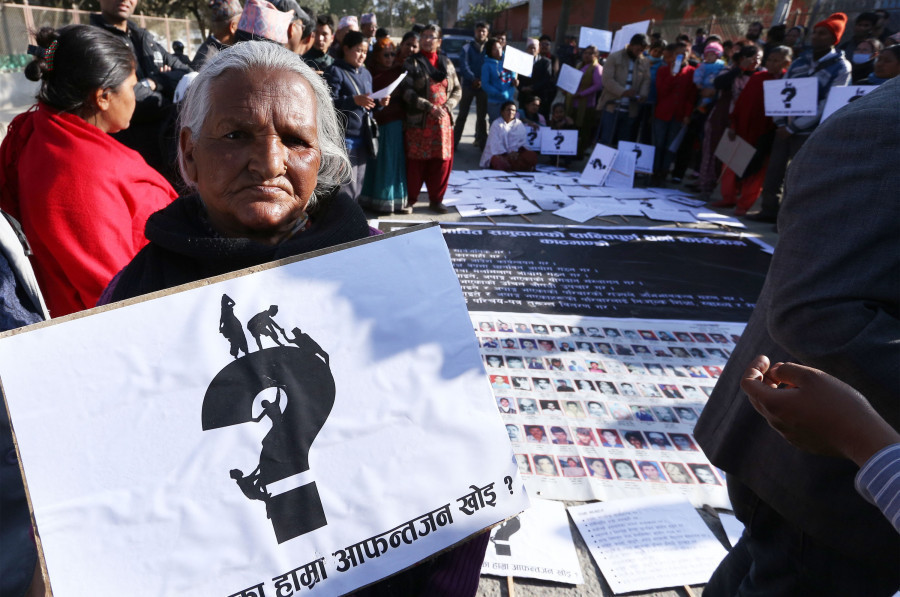Editorial
Justice as subterfuge
Make no mistake, the ruling party is hardly interested in concluding the transitional justice process.
If there is one approach that leaders from major political parties have consistently adopted towards Nepal’s transitional justice process, it is deceit. They raise the issue of transitional justice at various occasions for sure, but they do so only to ensure that their political goals are met, and their opponents downsized. The report produced by a six-member task force formed to propose measures to end the months-long dispute within the ruling Nepal Communist Party has given considerable attention to the lacklustre transitional justice process.
At first glance, it seems as if the party is keen to see that the process sees a logical end. But the latest proposal is more a result of a power tussle between the two factions than an earnest attempt at finding a lasting solution to the problem. The suspicion among conflict victims that the new proposal is aimed at diluting the very question of justice in the transitional justice process is, therefore, not unfounded.
The report is problematic in several ways. It presents the process as one concerned with only reconciliation between perpetrators and victims. Of course, the truth and reconciliation process considers reconciliation as a major aspect of the process. But the task force’s proposal reeks of a sinister plot to brush all cases of conflict-era crimes under the carpet of forced reconciliation. It says nothing about criminal proceedings against the perpetrators of heinous crimes and extrajudicial killings where the victims are not willing to reconcile. That is what says it all: It wants to make sure that all perpetrators of conflict-era crimes get away without any prosecution.
The report also proposes the adoption of a fast-track approach to conclude the entire process in a year by devising a favourable law. The idea seems to be to minimise the role of the Truth and Reconciliation Commission (TRC) and the Commission of Investigation on Enforced Disappeared Persons (CIEDP). In any case, the twin commissions have made little progress: As of now, the TRC has investigated around 3,800 of the over 63,000 cases it received; the CIEDP, around 2,000 of the over 2,500 cases. As the commissions await an amendment to the Transitional Justice Act, they have little role to play even in the investigations that have been finalised. Hence the disingenuous idea of fast-tracking the process.
The idea was first floated by Nepal Communist Party co-chair Pushpa Kamal Dahal during the Standing Committee meeting in December last year. As the chief architect of the 10-year Maoist insurgency, Dahal has a point in proposing such a process. Effective implementation of the idea is a sure shot way for Dahal to get a clean chit on the heinous crimes committed during the insurgency. But there is no dearth of Dahal's detractors within the Nepal Communist Party—especially the acolytes of another co-chair and Prime Minister KP Sharma Oli—who make it a point to taunt him by raising the issue of transitional justice quite often to keep him in check.
As someone who has put Oli in considerable stress by asking for his resignation, Dahal is now in a position to bargain. And he seems to have used his advantage to give closure to the transitional justice process once and for all. The task force's recommendations on the process that put the former combatants at an advantage are, thus, the result of a bargain between the two factions of the ruling party rather than a genuine concern for truth and reconciliation. Rights activists, conflict victims and the public must speak up against the proposal that aims to dilute the transitional justice process.




 18.12°C Kathmandu
18.12°C Kathmandu














